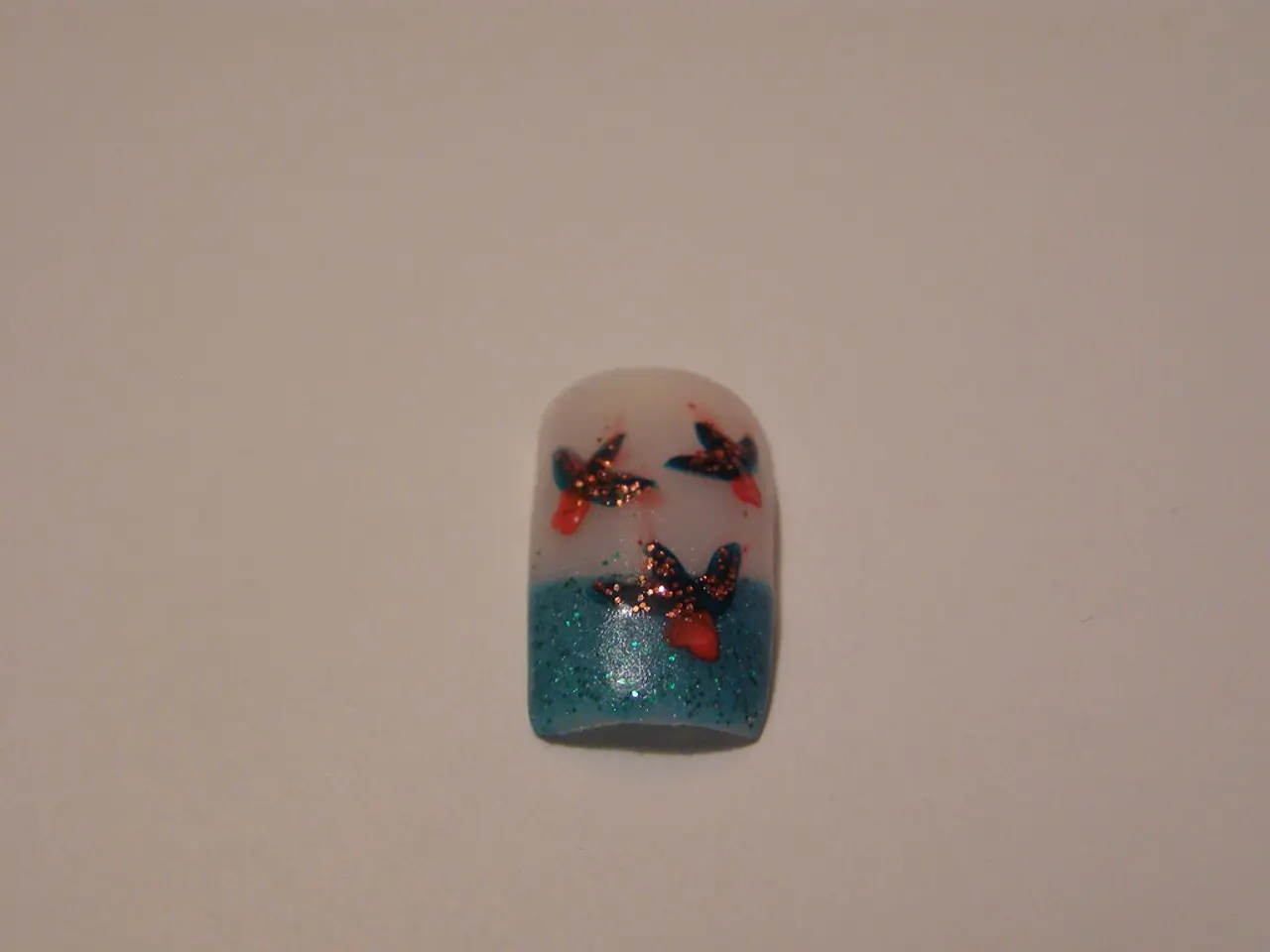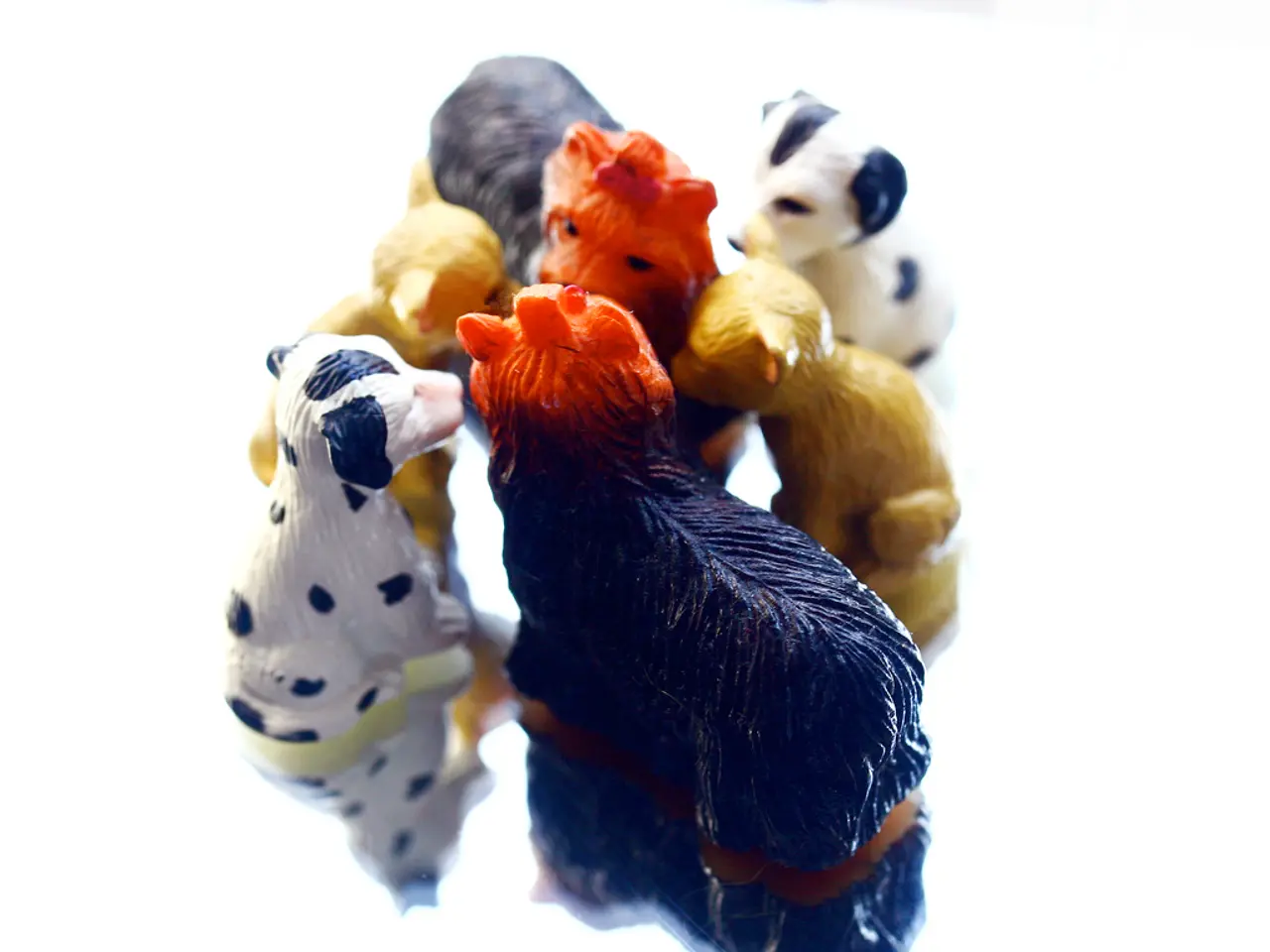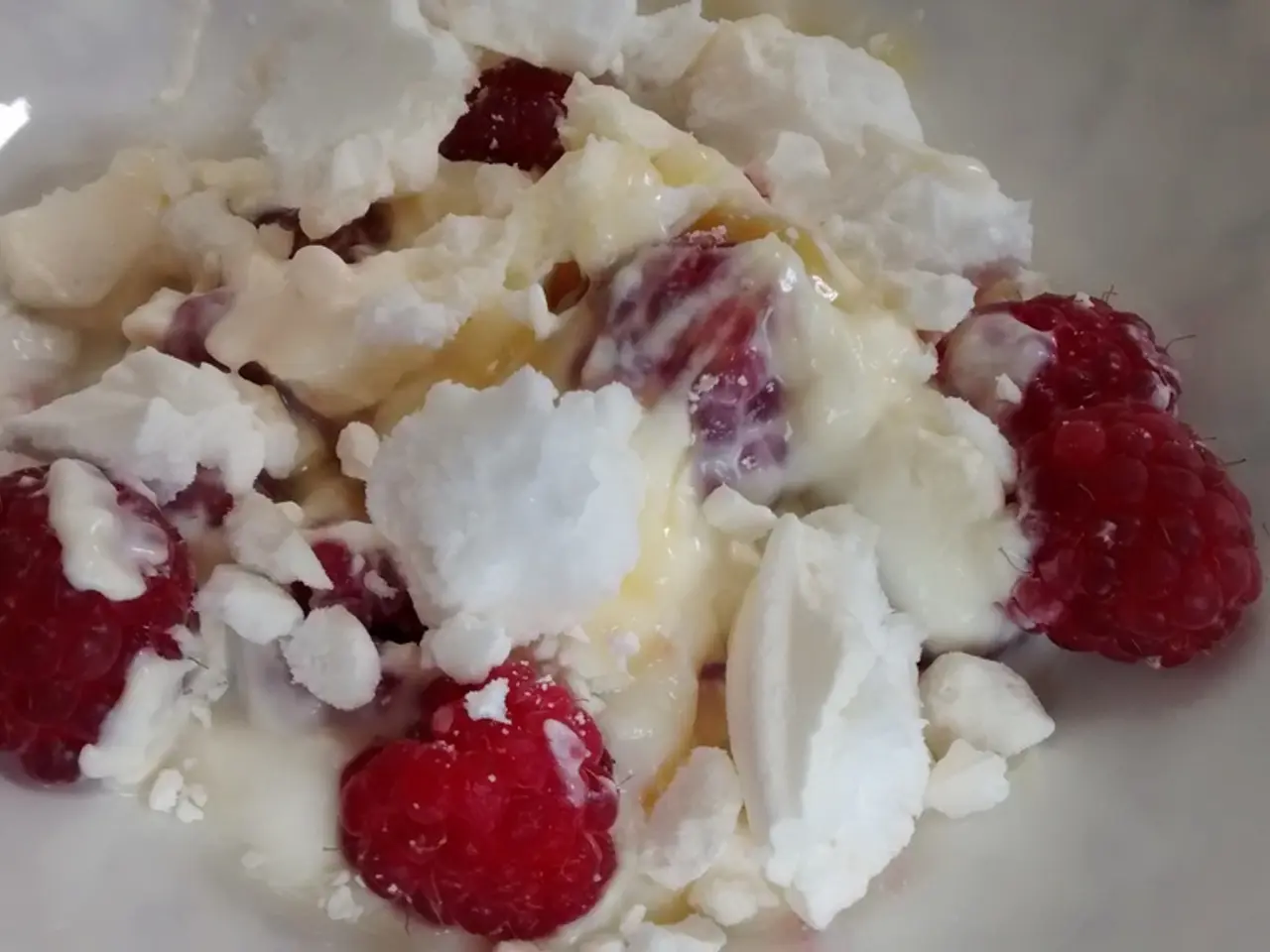Nail salon visits during pregnancy: Potential hazards, safety measures, and other considerations
In recent times, there has been growing concern about the safety of nail treatments like acrylics and gel nails during pregnancy. This apprehension stems from potentially harmful chemicals such as formaldehyde, toluene, dibutyl phthalate (DBP), and triphenyl phosphate (TPHP) that may be present in many conventional nail products [1][2].
While manicures and nail polish are not completely off-limits during pregnancy, caution is advised. Exposure to toxic chemicals through nail treatments might affect reproductive health and fetal development, especially in the critical early stages of pregnancy [1][5].
Fortunately, there are safer alternatives available. Non-toxic or "3-free," "5-free," or more advanced nail polishes that exclude harmful chemicals like formaldehyde, toluene, DBP, and camphor provide a safer option during pregnancy and postpartum without compromising style or durability [2].
The first trimester, when the embryo is most vulnerable to external chemicals, warrants special attention [5]. There is less definitive direct clinical research on exact fetal outcomes from gel or acrylic nail use, but professional reproductive medicine experts recommend minimizing exposure to toxic solvents and chemicals commonly found in these products [1].
Other cosmetic product use advice for pregnancy emphasizes limiting exposure to products with retinoids, benzoyl peroxide, strong fragrances, and heavy chemicals known to affect fetal development [5].
In terms of specific nail treatments, it is best to avoid exposure to certain chemicals during a manicure. Methyl methacrylate, present in some bonding solutions for fake nails, is not safe for anyone [3]. If a person wants acrylic nails during pregnancy, they should ask the nail technician to use a bonding agent that does not contain methyl methacrylate.
Avoiding powder, gel, and acrylic nails may also help reduce potential risks [6]. Anyone concerned about manicure chemicals might wear a mask and opt for traditional, rather than gel, polish.
It is important to note that no comprehensive recent study definitively establishes gel or acrylic nails as safe or unsafe during pregnancy with regard to fetal development [1][2]. However, expert reproductive health guidance recommends caution due to known toxic ingredients in many nail products [1][2].
In summary, pregnant individuals should:
- Prefer non-toxic, chemical-free nail products.
- Avoid frequent or prolonged exposure to nail chemicals, particularly in enclosed spaces.
- Consult healthcare providers for personalized advice.
- Recognize that while manicures are not strictly prohibited, minimizing exposure to hazardous chemicals is recommended to protect fetal development [1][2][5].
While high-quality, controlled studies specifically addressing gel or acrylic nail safety during pregnancy are relatively scarce, current evidence and expert consensus suggest the potential risks stem from chemical exposure rather than the nail treatments per se [1][2][5]. Safer practices include using non-toxic polishes, well-ventilated spaces, and minimizing frequency of traditional acrylic or gel treatments during pregnancy, especially early on [1][2][5].
- In the context of health-and-wellness during pregnancy, it is advisable to consider non-toxic or '3-free' nail polishes, as they are devoid of harmful chemicals like formaldehyde, toluene, and DBP, offering a safer option without compromising style or durability.
- Methyl methacrylate, a chemical present in some bonding solutions for fake nails, is not safe for use during pregnancy, necessitating a discussion with the nail technician to use a bonding agent devoid of this compound.
- Adhering to science-backed advice, pregnant individuals should refrain from exposing themselves to gel or acrylic nails and instead opt for traditional polish while wearing a mask in well-ventilated spaces, with the frequency of manicures minimized, especially during the critical early stages of pregnancy.
- In a holistic approach to pregnancy, it is wise to heed expert guidance on cosmetic product use, such as avoiding products with retinoids, benzoyl peroxide, strong fragrances, and heavy chemicals known to potentially affect fetal development. Remaining blocked from harmful chemicals during pregnancy can lead to a healthier pregnancy, as per current evidence in health-and-wellness contexts.




